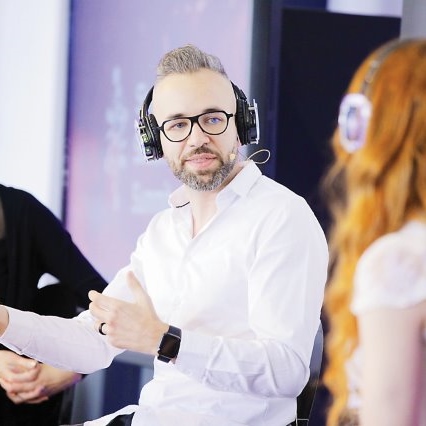SA
Small step turned into giant leaps for A-man
Today Adam Pantanowitz is an iconic biomedical engineer, entrepreneur, and university lecturer. But that was not always the case for this tomahawked techie. Speaking to an enraptured crowd at Singularity University in Kyalami, Pantanowitz took the audience on a journey from disability to triumph.

HOWARD SACKSTEIN
Afflicted with a neuro-degenerative disease at a young age, Pantanowitz lost his ability to walk. At the age of 13, surgery appeared to be the only option, but the operations didn’t go well, and doctors quietly whispered to his family that he would probably not be able to walk again. A photo of him lying face-down on a bed, his legs mummified in bandages, overwhelmed the audience.
Dependent on his family and feeling increasingly isolated, Pantanowitz withdrew from the world. His excruciating pain confined him to bed, and he started missing school.
His grades began to suffer, and he overheard his parents question how he would ever be able to hold down a job. For him, work was a distant problem, all he had to do was get through the next day. “Pain can consume you,” he says. “I was isolated from my peers and despondent.”
“We went on holiday as a family, and my father had to carry me in and out of the holiday home.”
In Grade 11, surgeons decided to give it another shot, but this too did not go well. In Grade 11, Pantanowitz skipped the entire year of school.
He searched for answers in traditional medicine and alternative care, but all of this lead nowhere. The drugs administered to him resulted in mental decline, and he lived in his family’s TV room, unable to climb the stairs back to his bedroom.
In the corner of the TV room was the family computer, and it was there that he found solace. The computer was attached to the world through the internet and through its copper wires, Pantanowitz could “slip the surly bonds of earth, touch the face of G-d”. He started hacking away at the internet, writing software, and taking his computer apart. It was much easier to take things apart than it was to put them back together.
Pantanowitz made a fundamental decision about his life. His pain medication was leaving him in a constant haze, he needed to break free, and clear his mind. He went cold-turkey on his drugs, and with sheer grit, moved from crawling to crutches, from crutches to walking with a limp, to a barely noticeable gait today.
It took him some time, but Pantanowitz wrote matric and arrived at the University of Witwatersrand unsure of what he wanted to do with his life. During orientation week, he heard that biomedical engineering was one of the most difficult courses on campus – and he loved a challenge.
The course was oversubscribed, and Pantanowitz’s grades were not good enough, having missed a big chunk of high school. Emboldened by determination and sheer chutzpah, he set up camp outside the office of the dean of engineering until the dean agreed to admit him in class.
Pantanowitz described the fear that he was an “imposter”, ill-equipped to compete with the genii who sat next to him at university.
Four years later, Pantanowitz graduated top of his class, having been the top student in each of his years of engineering, and winning the Dean’s Gold Medal.
Pantanowitz gives back. He lectures in electrical engineering, bio-medical engineering, and medicine. He gyms, and has competed in the 94.7 cycle race. He has also been involved in a number of start-up businesses including Tariffic and Aura.
One of his most notable achievements was “hacking the human brain”, a project which attached a human brain to a computer network and using sensitive electrodes, accurately read and understood the brainwaves of its human subjects.
Today, Pantanowitz is a faculty member of Singularity University, telling the story of his triumph over adversity, and talking philosophically about how technology can enhance the human race. When he walks onto stage, his minor limp is barely noticeable, but his inspiring story of triumph is a giant leap for all mankind.